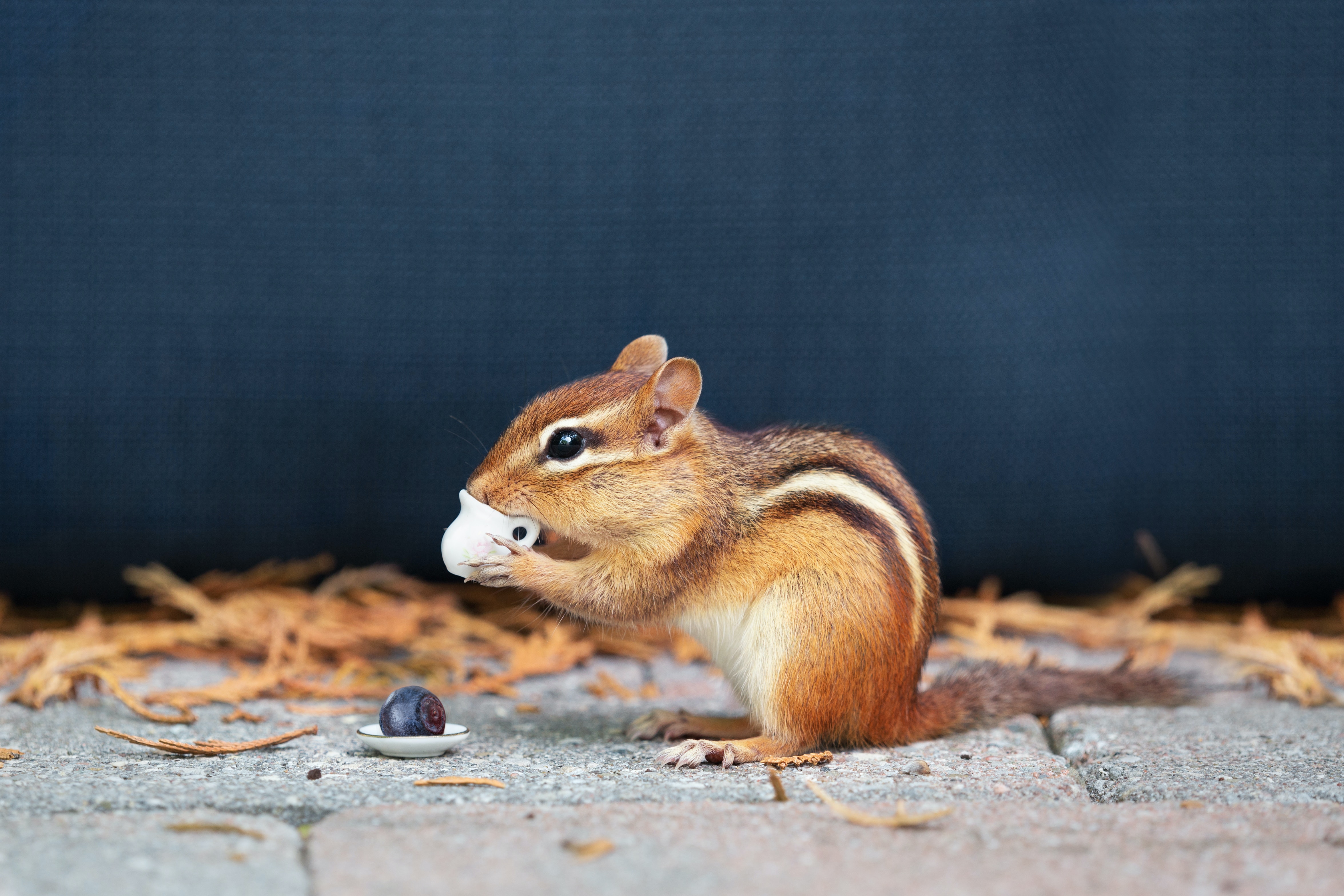If you’ve ever had a garden, then you know how hard it can be to fend off the wildlife that wants to eat your vegetables before you can or that ruin your flowers and plants by eating them before you ever get to enjoy them. There are so many culprits when it comes to your garden, but some are small, quick, and have no fear! They’re not just the cute little characters from an animated movie and they don’t really talk, but if they could, we’d be having a serious talk about leaving my garden alone. Who are the persistent offenders who tirelessly invade our gardens and flower beds? Chipmunks!
Keeping chipmunks out of the garden might be easier than you think. Adding hot spices from your kitchen cabinet including chili powder, cayenne pepper, garlic, black pepper or any other spicy favorites you have around will do the trick. Peppermint, cinnamon, and citrus are also great deterrents. You can also try netting around the tops and sides of your garden, but this can be hard to maintain and restrict your ability to pull weeds as needed.

What smells do chipmunks hate?
In general, chipmunks do not like strong odors like the spicy seasonings listed above, and they especially hate the smell of garlic. Other strong odors like peppermint, cinnamon, citrus, and eucalyptus are also great deterrents for chipmunks. Try spreading these around your garden areas or flower bed to keep them away. You can also add aromatic plants to your garden such as onions, hyacinth, marigolds, and daffodils.
Other ways to keep chipmunks out of gardens
Use a decoy predator
You can try using a motion-activated owl decoy to scare off the chipmunks that are hanging around your garden and this may work for a short time. However, chipmunks, as you probably know, are very persistent critters and they may soon learn that this decoy is not an actual threat and scurry on by as they feast on your delicious fruits and veggies.
Place a chipmunk feeder
Some people go the other route and instead of trying to deter chipmunks, they attract them with a feeder for chipmunks. The idea behind this method is that if you set up a feeder in a location far away from your garden, the chipmunks will choose to go to the feeder instead since this is an easy source of food for them. You can do this at the perimeter of your yard in a place where there are no flower beds for them to bother. We have tried this method with squirrels and it has worked quite well. Not to mention, it is often very entertaining to watch them take turns at the feeder (or fight over the feeder!)
Electronic repellent
Electronic repellents use ultrasonic pulses or small sprays of water to get rid of chipmunks in the garden as well as other common nuisances like deer, rabbits, raccoons, and squirrels. This is an inexpensive and fairly effective way to keep all the critters away. Just remember they are there when you go out to the garden, so you don’t get sprayed yourself!
Garden placement
If you have a bird feeder in your yard, you know that the chipmunks will find it rather quickly. Any dropped seeds on the ground will keep them coming back for more, and a lot of times they are able to climb the bird feeder pole and get directly to the feeder itself. You should place bird feeders 15 to 30 feet from a garden or building. Gardens should also be planted away from trees, shrubs, and tall grass that provide cover for chipmunks to hide. They are less likely to invade a garden away from the security of any type of cover.
Can chipmunks get through chicken wire?
In our experience, chicken wire does not keep the chipmunks out of our garden and is really just a pain for us to put up. Chipmunks are very persistent and seem to have an easy time squeezing through the holes of the chicken wire. They will return only moments after us running them off and the chicken wire hardly even seems to slow them down. Save yourself the trouble of messing with the wire and try other solutions first.
Are chipmunks carnivores or herbivores?
Actually, chipmunks are omnivores! Many are surprised to find that they eat both plant and animal sources. A chipmunk’s diet will vary from vegetation such as berries, seeds (yes, right out of your birdfeeder), nuts, fruits, but also bird eggs, insects, worms, and even small frogs. So when you plant a garden full of yummy fruits and vegetables, don’t be surprised if the chipmunks pay you a visit. It’s best to be proactive about keeping the chipmunks out when you first start your garden so that they don’t eat your fruits and vegetables before you even have time to harvest.
What attracts chipmunks?
If you want to keep chipmunks away, it’s also important to know what attracts them. Tulips are a favorite of chipmunks and they will actually dig up and eat the bulbs, especially in the winter since chipmunks are burrowing creatures. Other favorites include sunflowers, lilies, daisies, and plants bearing fruits and vegetables. If you have a bird feeder, then you also know that birdseed is also a major attractant for chipmunks so it’s best not to put your feeders close to your garden.
Personally, we have found the method of spreading spices around the garden and flower beds to be the most effective way to keep the chipmunks away. The only problem with this method is that you have to reapply frequently. If it rains a lot in your area, you will have to re-spread the spices each time it rains. Electronic repellents are a great alternative because the chipmunks and the other garden pests are effectively deterred by being sprayed, each and every time.
